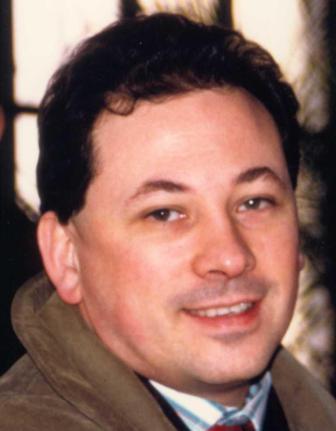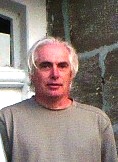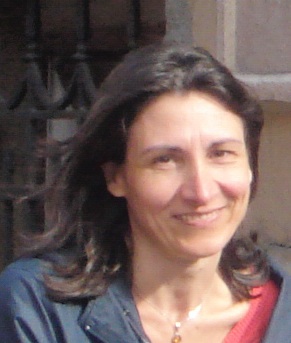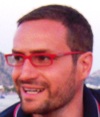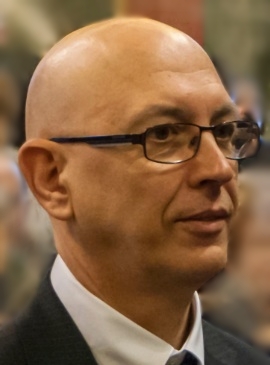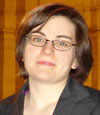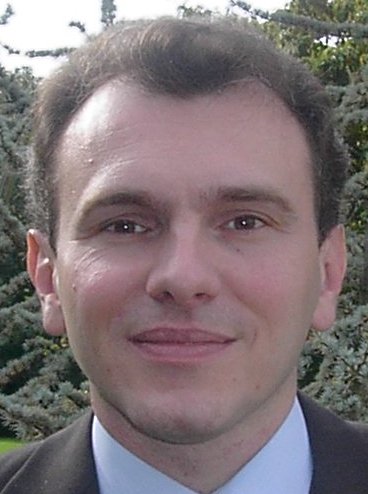Studying at the University of Verona
Here you can find information on the organisational aspects of the Programme, lecture timetables, learning activities and useful contact details for your time at the University, from enrolment to graduation.
Academic calendar
The academic calendar shows the deadlines and scheduled events that are relevant to students, teaching and technical-administrative staff of the University. Public holidays and University closures are also indicated. The academic year normally begins on 1 October each year and ends on 30 September of the following year.
Course calendar
The Academic Calendar sets out the degree programme lecture and exam timetables, as well as the relevant university closure dates..
| Period | From | To |
|---|---|---|
| I semestre | Oct 4, 2010 | Jan 31, 2011 |
| II semestre | Mar 1, 2011 | Jun 15, 2011 |
| Session | From | To |
|---|---|---|
| Sessione straordinaria | Feb 1, 2011 | Feb 28, 2011 |
| Sessione estiva | Jun 16, 2011 | Jul 29, 2011 |
| Sessione autunnale | Sep 1, 2011 | Sep 30, 2011 |
| Session | From | To |
|---|---|---|
| Sessione autunnale | Oct 20, 2010 | Oct 20, 2010 |
| Sessione straordinaria | Dec 14, 2010 | Dec 14, 2010 |
| Sessione invernale | Mar 23, 2011 | Mar 23, 2011 |
| Sessione estiva | Jul 18, 2011 | Jul 18, 2011 |
| Period | From | To |
|---|---|---|
| All Saints | Nov 1, 2010 | Nov 1, 2010 |
| National holiday | Dec 8, 2010 | Dec 8, 2010 |
| Christmas holidays | Dec 22, 2010 | Jan 6, 2011 |
| Easter holidays | Apr 22, 2011 | Apr 26, 2011 |
| National holiday | Apr 25, 2011 | Apr 25, 2011 |
| Labour Day | May 1, 2011 | May 1, 2011 |
| Local holiday | May 21, 2011 | May 21, 2011 |
| National holiday | Jun 2, 2011 | Jun 2, 2011 |
| Summer holidays | Aug 8, 2011 | Aug 15, 2011 |
Exam calendar
Exam dates and rounds are managed by the relevant Science and Engineering Teaching and Student Services Unit.
To view all the exam sessions available, please use the Exam dashboard on ESSE3.
If you forgot your login details or have problems logging in, please contact the relevant IT HelpDesk, or check the login details recovery web page.
Should you have any doubts or questions, please check the Enrollment FAQs
Academic staff
Bertelle Roberto
 federica.briata@univr.it
federica.briata@univr.it
Guarnieri Valerio
 valerio.guarnieri@univr.it
valerio.guarnieri@univr.it
 +39 045 802 7085
+39 045 802 7085
 massimo.guerriero@univr.it
massimo.guerriero@univr.it
 luca.vigano@univr.it
luca.vigano@univr.it
Study Plan
The Study Plan includes all modules, teaching and learning activities that each student will need to undertake during their time at the University.
Please select your Study Plan based on your enrollment year.
1° Year
| Modules | Credits | TAF | SSD |
|---|
2° Year activated in the A.Y. 2011/2012
| Modules | Credits | TAF | SSD |
|---|
3° Year activated in the A.Y. 2012/2013
| Modules | Credits | TAF | SSD |
|---|
Un insegnamento a scelta tra i seguenti:| Modules | Credits | TAF | SSD |
|---|
| Modules | Credits | TAF | SSD |
|---|
| Modules | Credits | TAF | SSD |
|---|
Un insegnamento a scelta tra i seguenti:Legend | Type of training activity (TTA)
TAF (Type of Educational Activity) All courses and activities are classified into different types of educational activities, indicated by a letter.
Foundations of Computing (2012/2013)
Teaching code
4S00005
Teacher
Coordinator
Credits
6
Language
Italian
Scientific Disciplinary Sector (SSD)
INF/01 - INFORMATICS
Period
I semestre dal Oct 1, 2012 al Jan 31, 2013.
Learning outcomes
The course covers standard principles and methods in theoretical computer science, notably in automata theory and computability. The course is structured in two parts: in the first part we cover automata, regular languages, context-free grammars, normal forms and formal Chomsky's language hierarchy. In the second part we cover the notion of computable function, decidability and issues in the mathematical or recursion.
The course requires the standard courses on Programming, Algorithms, Discrete mathematics and logic. It is introductory for the advanced courses in Complexity, Programming languages and Compilers, as well as for the courses in Security and Cryptography, Static Analysis and Protection, Artificial Intelligence, Automated Deduction, Semantics, Non-standard computational models.
Program
Automata and formal languages (20h): Formal languages and grammars, finite state automata, regular languages, context-free languages, normal forms, Push-down automata, Chomsky classification of formal languages. Computability (25h): intuitive notion of algorithm, Turing analysis of computable functions, Turing machines and WHILE-programs, Church thesis, Goedelization, universality, Theorem s-m-n, unsolvable problems and halting problem, metaprogramming, recursive and recursive enumerable sets, Recursion theorems, Rice Theorem, reducibility, complete, creative and productive sets.
Examination Methods
Written exam in 5 sessions, with intermediate evaluation. The exams are scheduled as follows: 1 intermediate (written) evaluation during the course, 2 exam in the Extraordinary Session at the end of the course, 1 exam in the Summer Session and 2 exams in the Fall Session.
Type D and Type F activities
Modules not yet included
Career prospects
Module/Programme news
News for students
There you will find information, resources and services useful during your time at the University (Student’s exam record, your study plan on ESSE3, Distance Learning courses, university email account, office forms, administrative procedures, etc.). You can log into MyUnivr with your GIA login details: only in this way will you be able to receive notification of all the notices from your teachers and your secretariat via email and soon also via the Univr app.
Graduation
List of theses and work experience proposals
| theses proposals | Research area |
|---|---|
| Analisi e percezione dei segnali biometrici per l'interazione con robot | AI, Robotics & Automatic Control - AI, Robotics & Automatic Control |
| Integrazione del simulatore del robot Nao con Oculus Rift | AI, Robotics & Automatic Control - AI, Robotics & Automatic Control |
| Domain Adaptation | Computer Science and Informatics: Informatics and information systems, computer science, scientific computing, intelligent systems - Computer graphics, computer vision, multi media, computer games |
| Domain Adaptation | Computer Science and Informatics: Informatics and information systems, computer science, scientific computing, intelligent systems - Machine learning, statistical data processing and applications using signal processing (e.g. speech, image, video) |
| BS or MS theses in automated reasoning | Computing Methodologies - ARTIFICIAL INTELLIGENCE |
| Domain Adaptation | Computing Methodologies - IMAGE PROCESSING AND COMPUTER VISION |
| Domain Adaptation | Computing methodologies - Machine learning |
| Dati geografici | Information Systems - INFORMATION SYSTEMS APPLICATIONS |
| Analisi e percezione dei segnali biometrici per l'interazione con robot | Robotics - Robotics |
| Integrazione del simulatore del robot Nao con Oculus Rift | Robotics - Robotics |
| BS or MS theses in automated reasoning | Theory of computation - Logic |
| BS or MS theses in automated reasoning | Theory of computation - Semantics and reasoning |
| Proposte di tesi/collaborazione/stage in Intelligenza Artificiale Applicata | Various topics |
| Proposte di Tesi/Stage/Progetto nell'ambito dell'analisi dei dati | Various topics |
Attendance
As stated in the Teaching Regulations for the A.Y. 2022/2023, attendance at the course of study is not mandatory.
